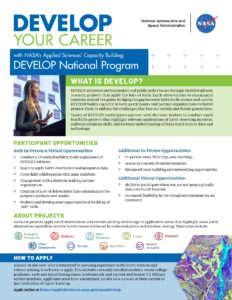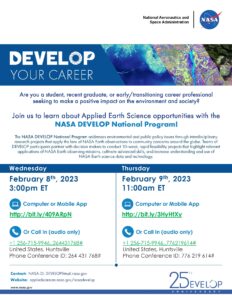Green Infrastructure for Sustainable Urban Environments (GI4SUrE) Research Experience for Undergraduates (REU) is a 10-week summer program designed to expose and immerse 10 undergraduate students to unique green infrastructure (GI) research.
Green infrastructure is a way to build better infrastructure, as a part of the National Academy of Engineering’s Grand Challenge, to restore and improve urban infrastructure. This program lets students perform field, laboratory, or modeling studies to explore how GI can mitigate the effects of urban runoff on surface water quality and hydrology. This research will affect not only eastern Tennessee, but any area that deals with urban stormwater runoff. Students will also dive into a professional and social atmosphere that will develop their fundamental research methodologies and critical thinking skills.
When does this program happen?
May 27 through August 6, 2023. This includes move-in/move-out days.
What does the program provide?
- Financial Package
- Stipend: $6,000
- Round Trip Travel Assistance to and from Knoxville TN
- On-Campus, suite-style housing
- Research Experience
- Students will engage in research that may include field work, lab work, and modelling while being immersed in social development with both this cohort and other summer programs at the University of Tennessee
Who can apply?
We are accepting applications now, and the application deadline is March 1st. You are responsible for ensuring that your application is complete prior to the application deadline. We will use a rolling admissions process (exceptional applicants may be accepted before the deadline) so you should submit your application early.
Students must meet these conditions:
- Be a citizen, a permanent resident of the United States, or an eligible non-citizen.
- Be enrolled in college for Fall 2023. Students graduating by May 23, 2023 are not eligible.
- Have successfully completed an introductory course in a STEM major. Applicants must be at least a rising sophomore and have taken a course in biology, chemistry, physics, ecology, environmental science, social sciences, or engineering.
- Be eligible to participate in the entire program, possibly including research that requires work on the weekends and performing field work and lab work.
We especially encourage applications from students who are from groups underrepresented in STEM, are veterans, disabled, or early in their undergraduate coursework.
Contact
Dr. Jon Hathaway
hathaway@utk.edu
865-974-6058
851 Neyland Dr.
415 John D. Tickle Building
Knoxville, TN 37996
Dr. Jon Hathaway received his PhD from North Carolina State University in 2010, where he studied the fate, transport, and removal of indicator bacteria in urban stormwater runoff. After a brief research fellowship at Monash University in Melbourne, Australia, and nearly two and half years at one of the nation’s leading ecological design and consulting firms, he joined the faculty of the Department of Civil and Environmental Engineering at the University of Tennessee, Knoxville.


